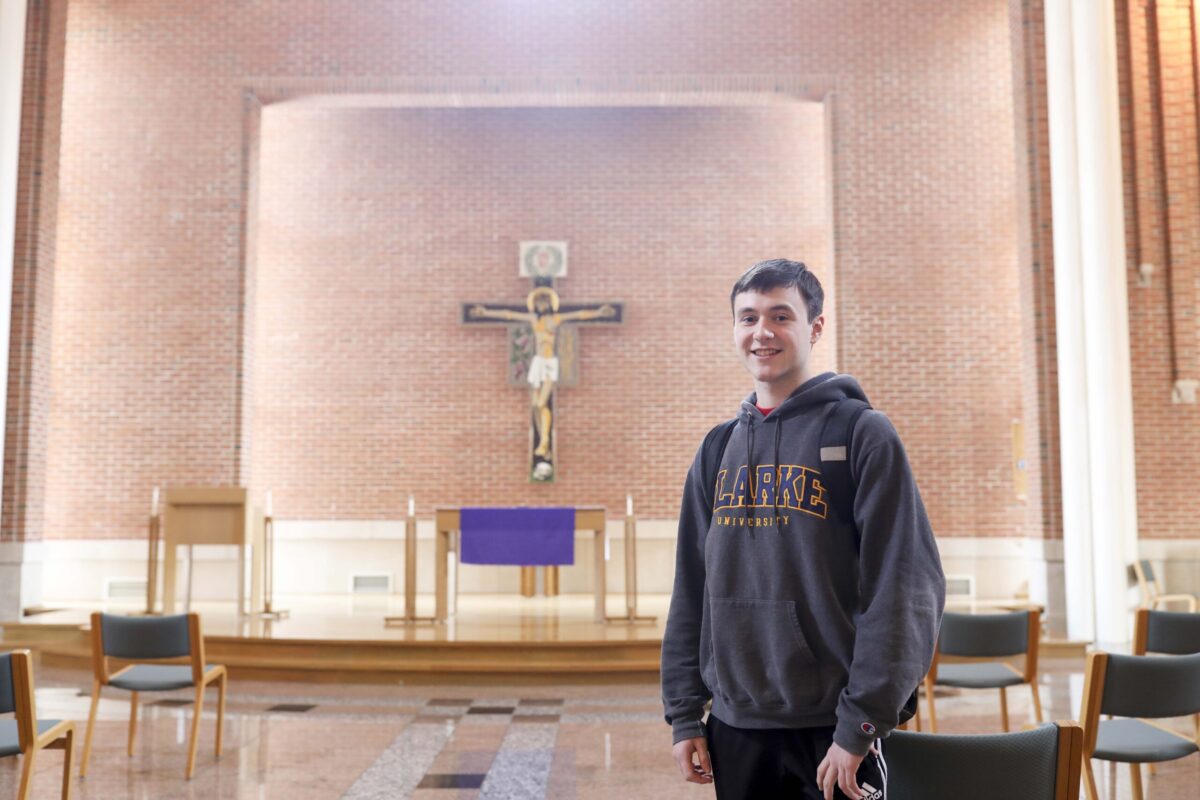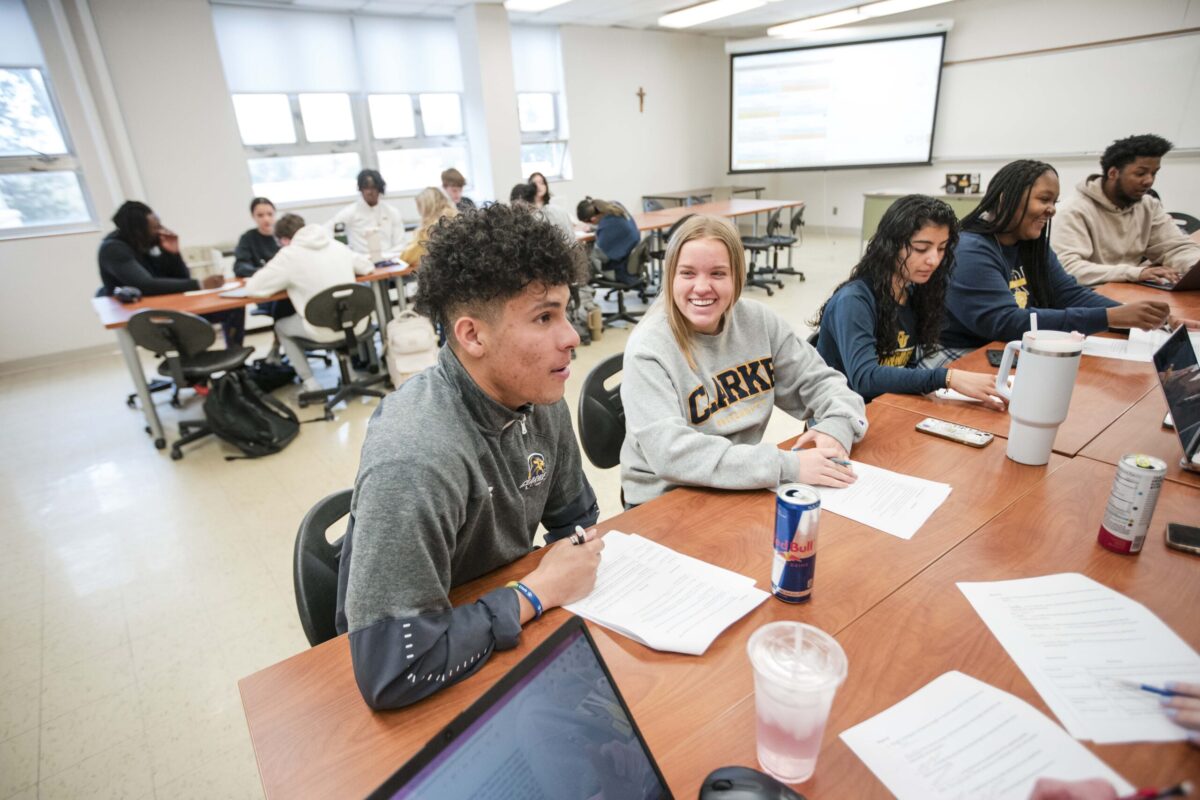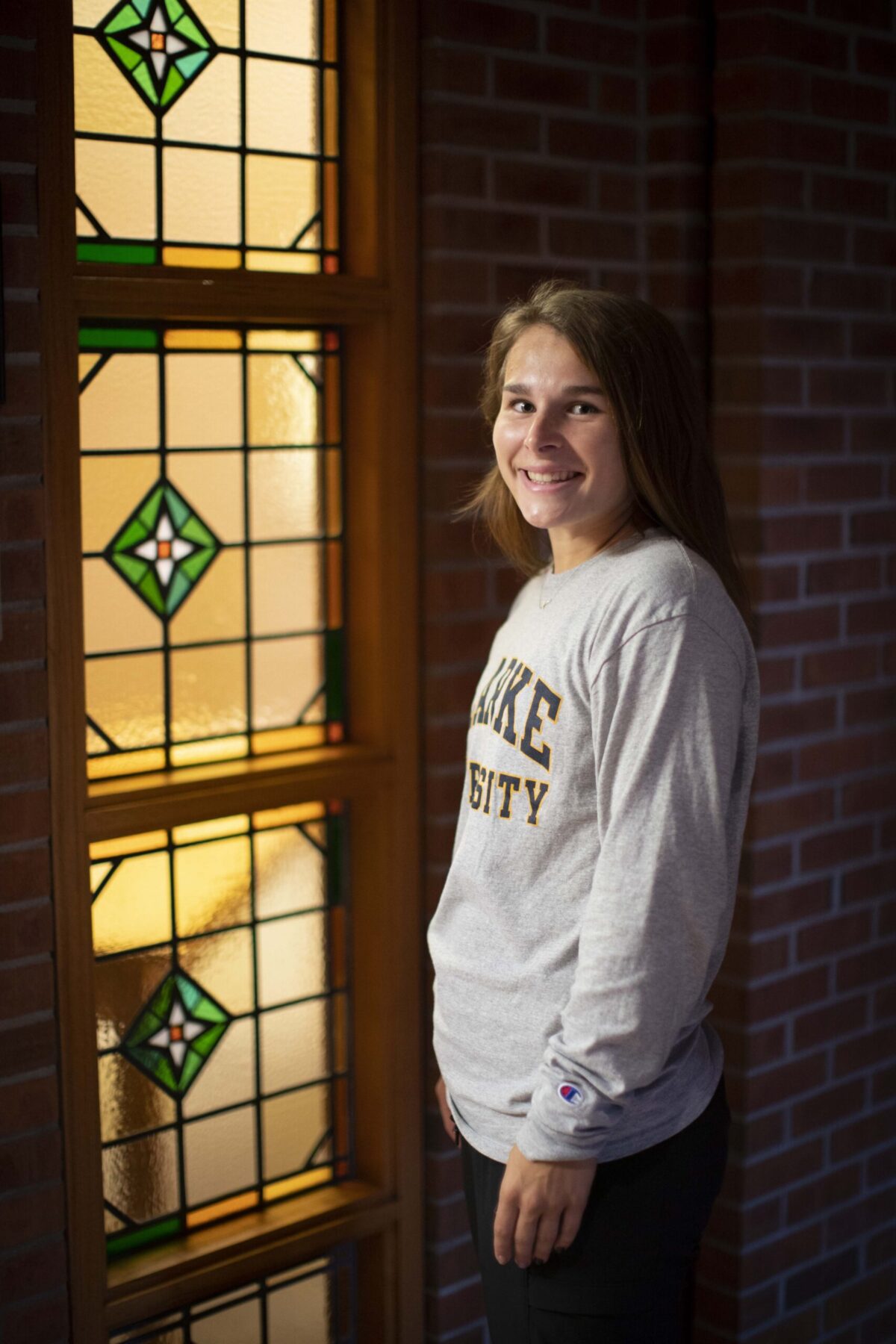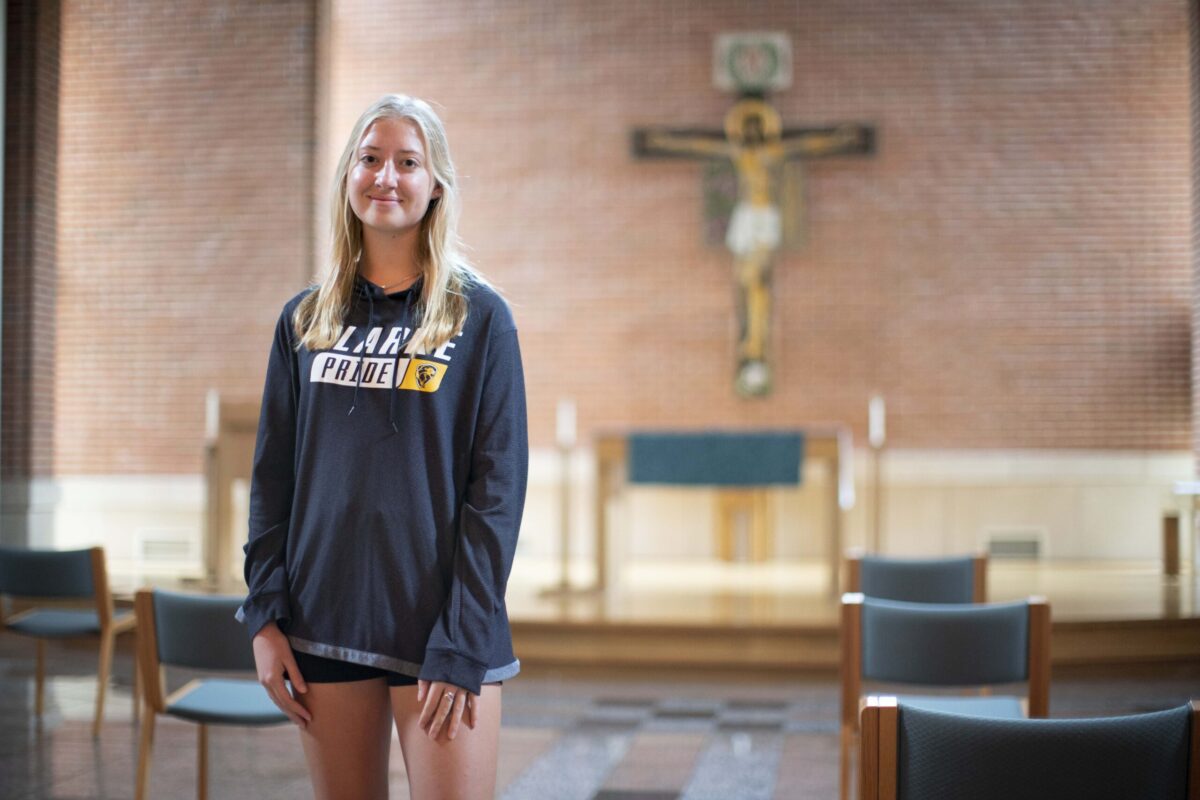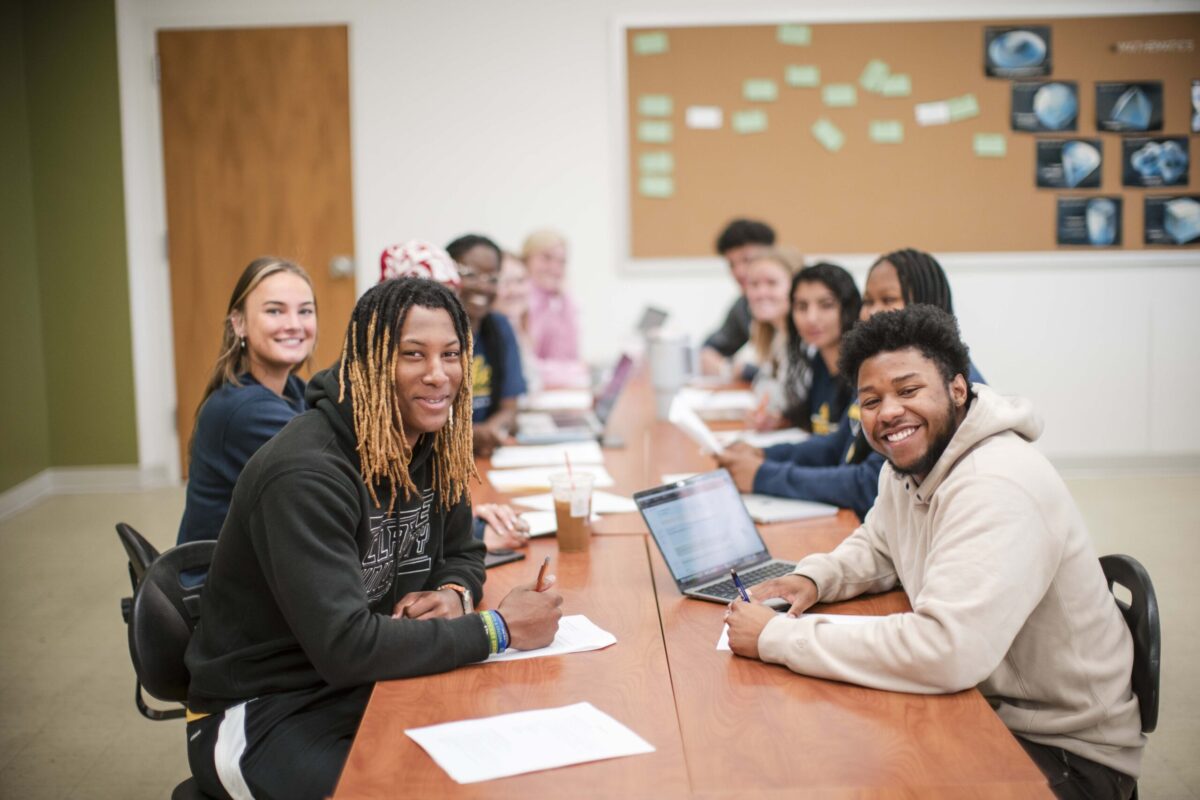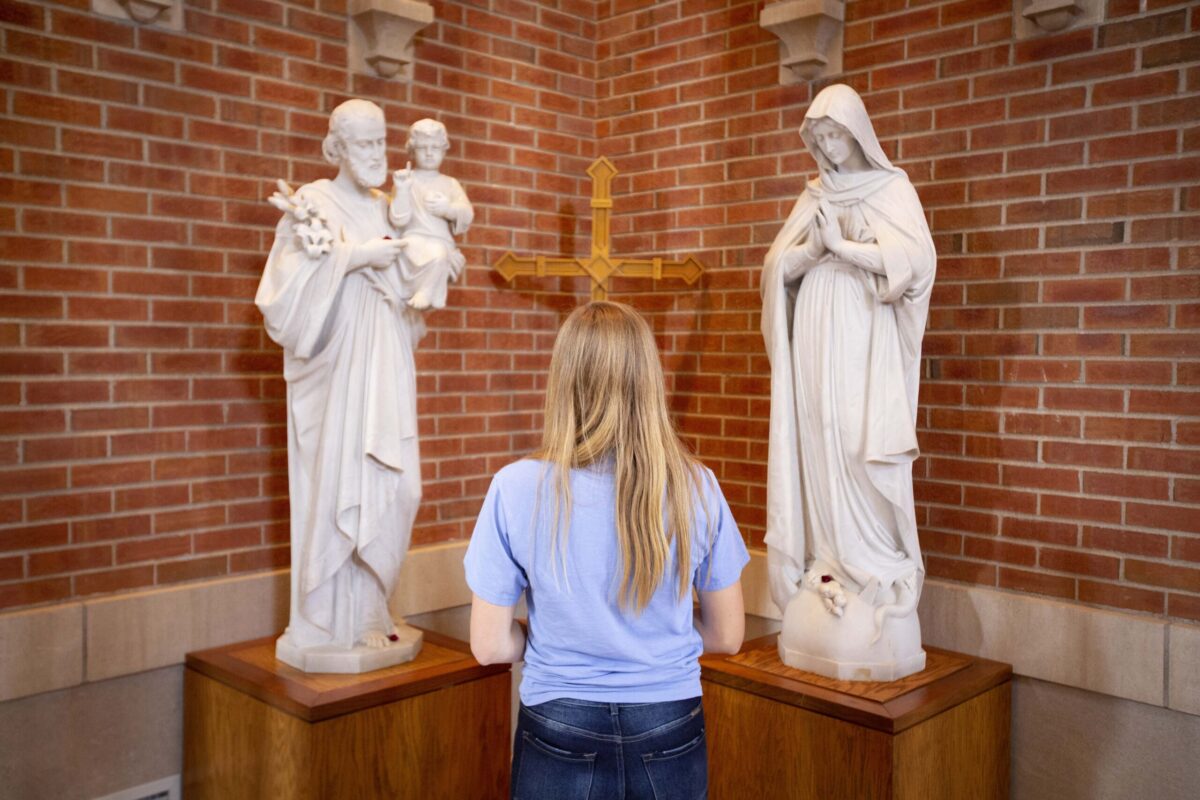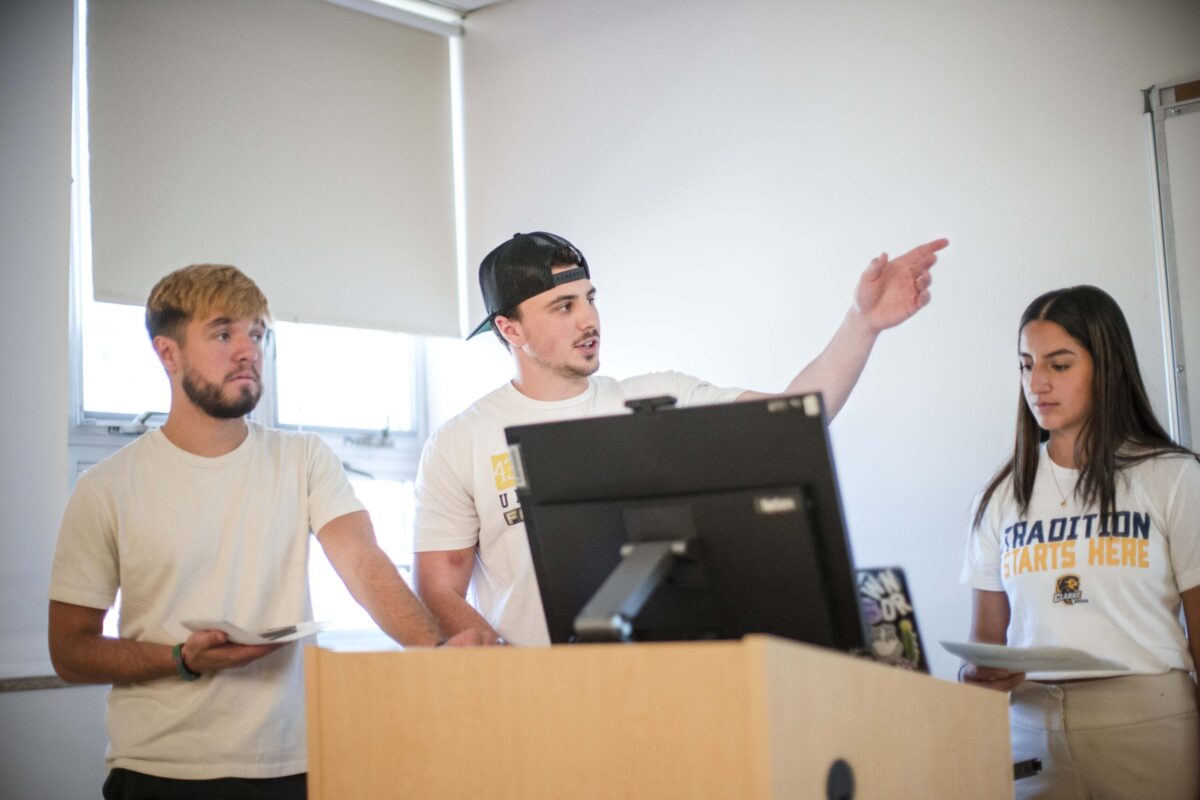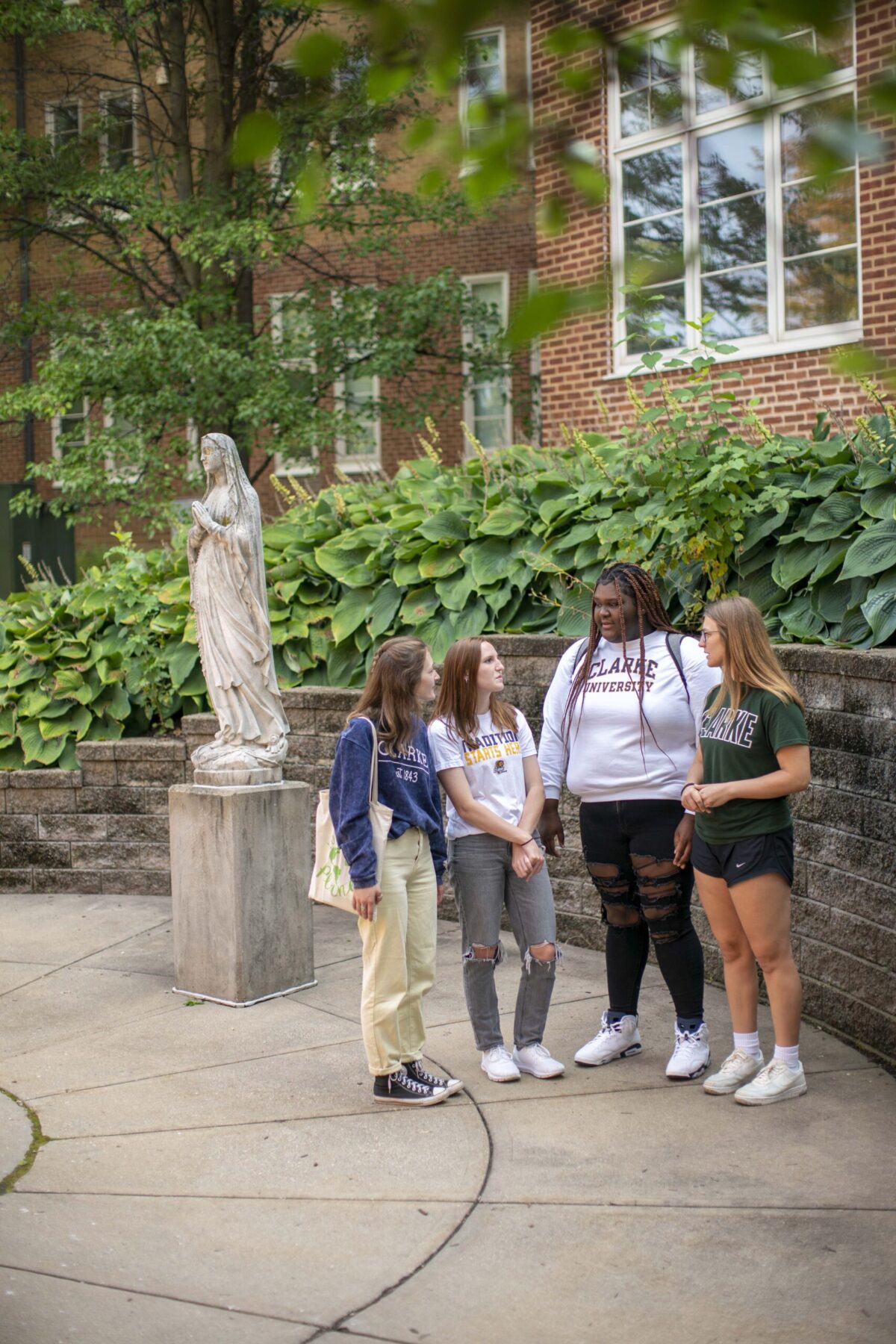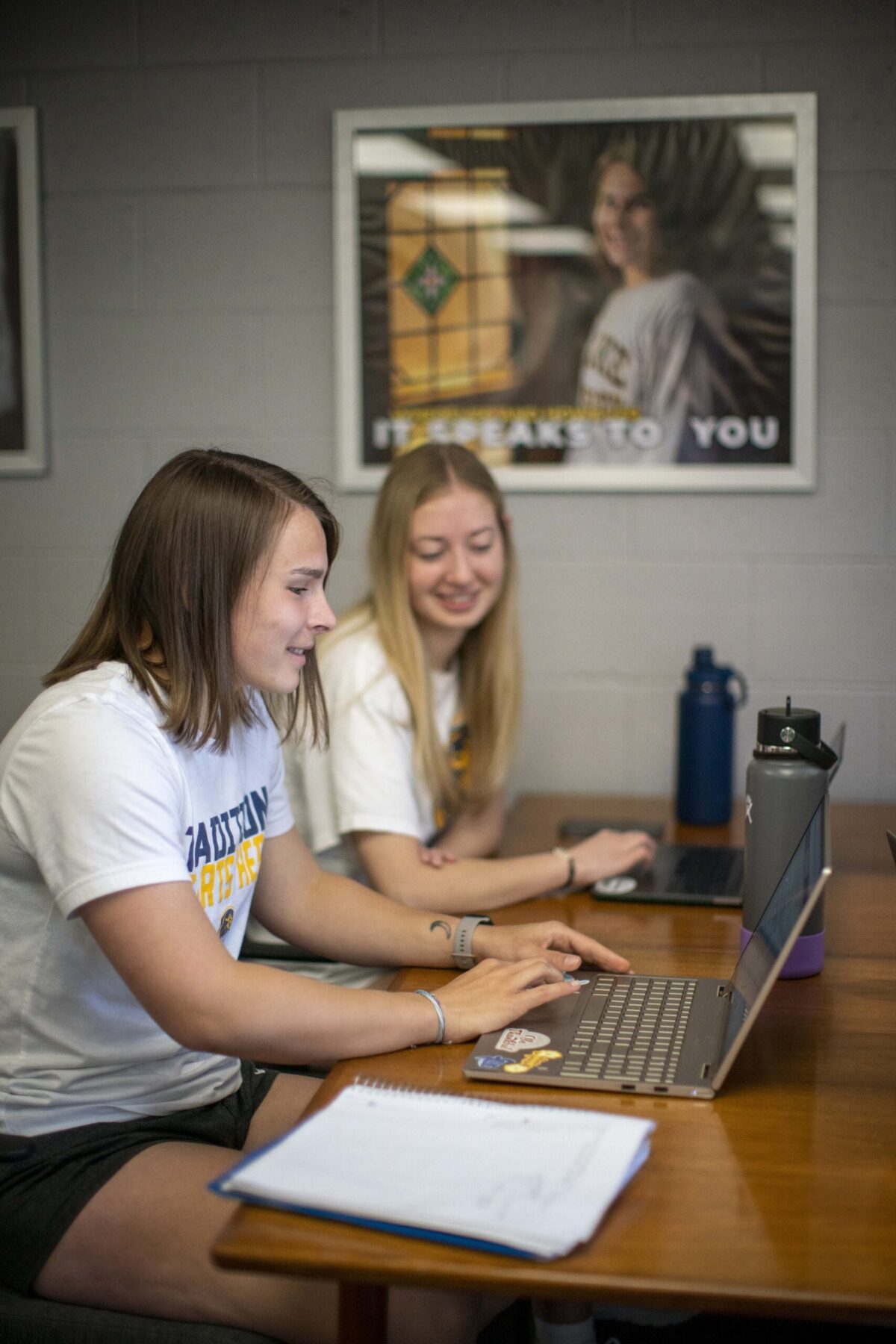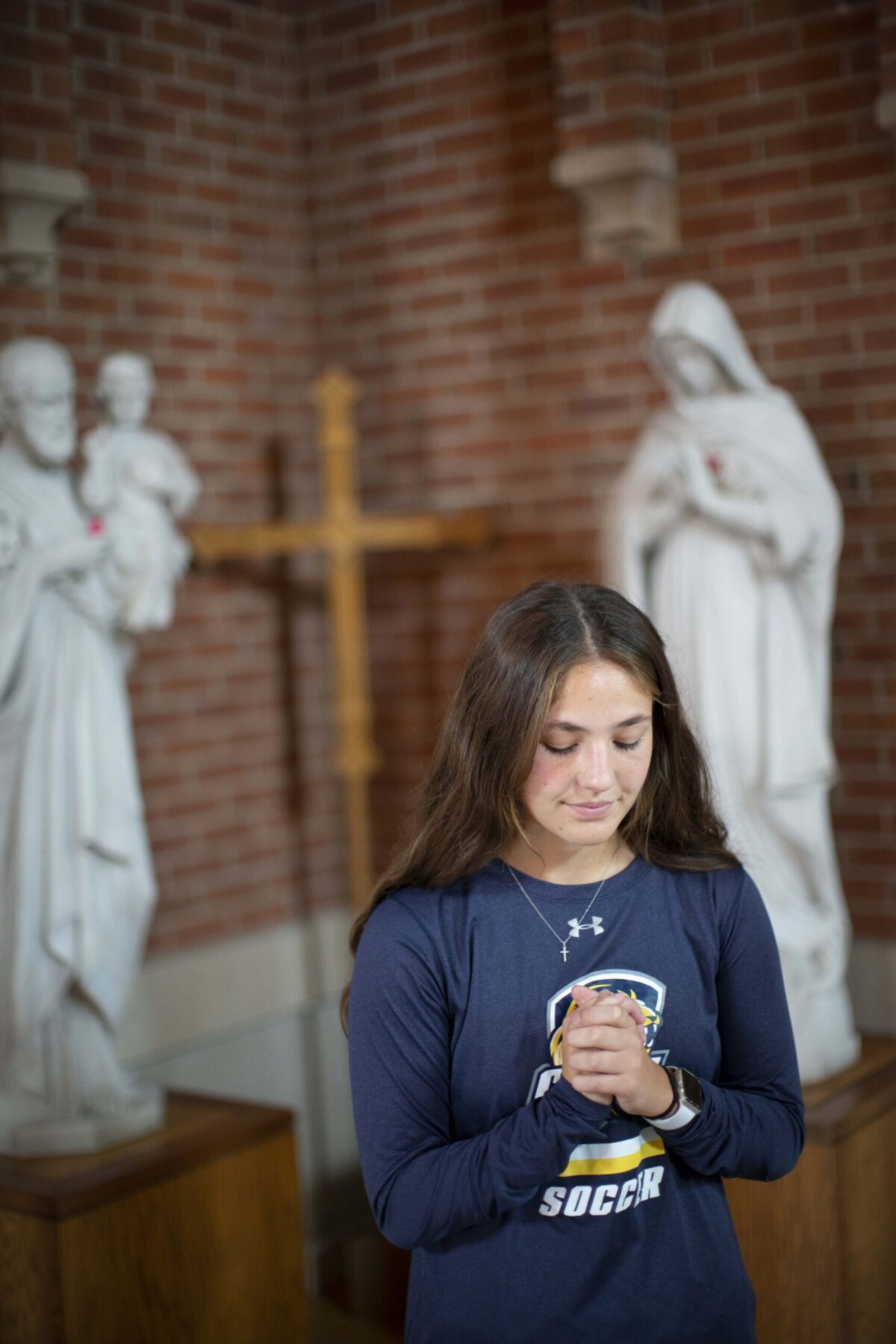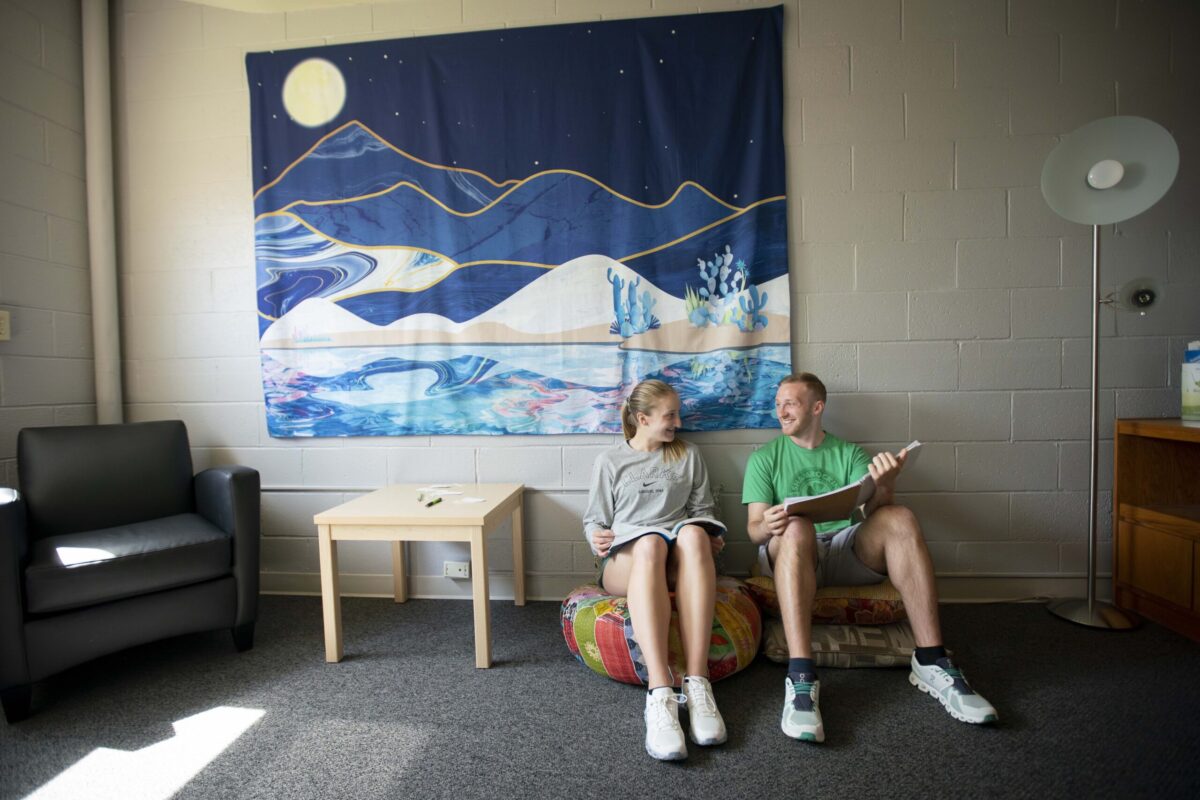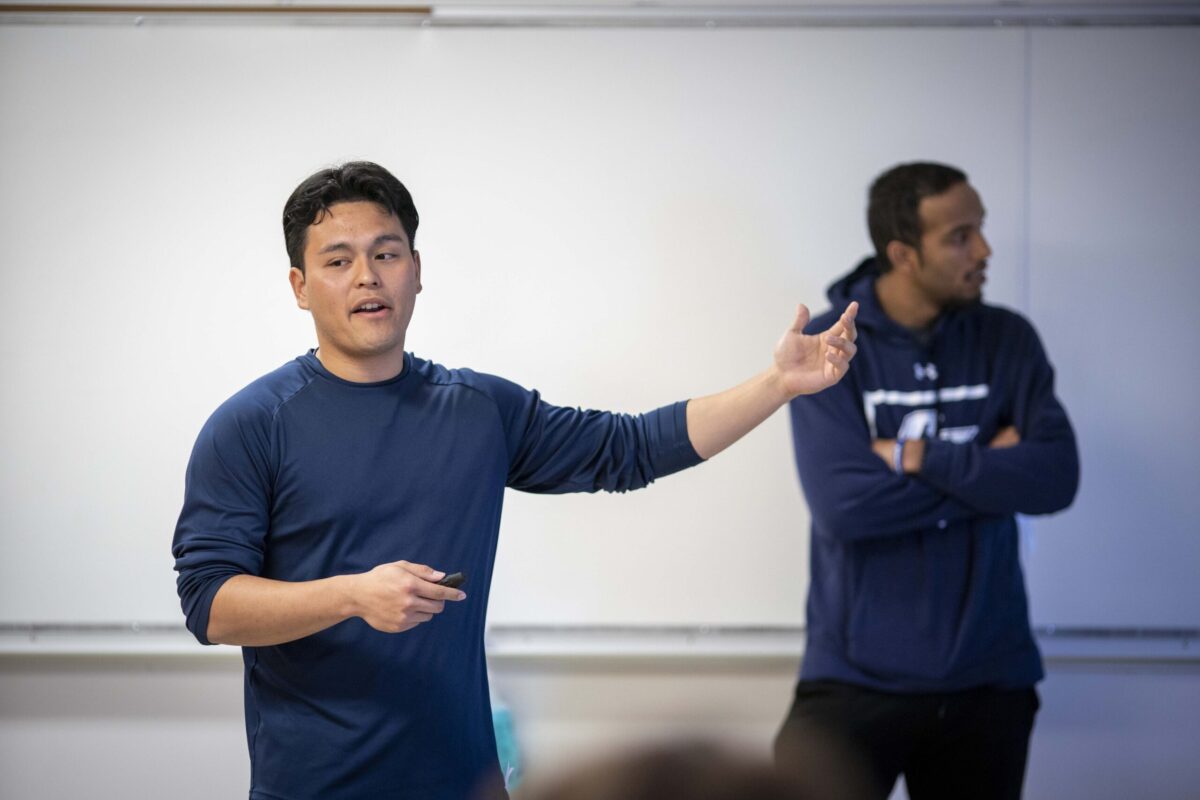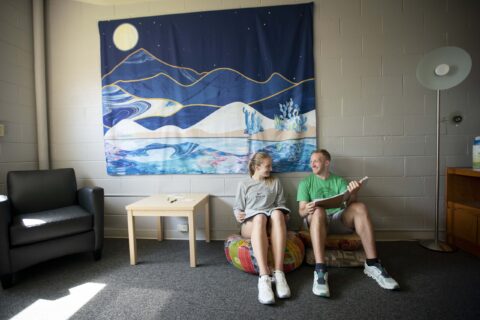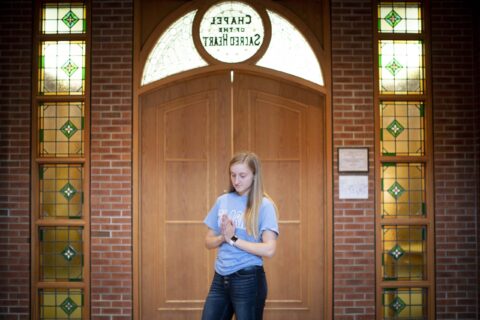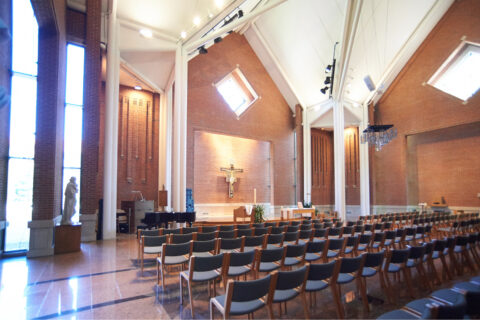Paulette Skiba, Ph.D.
I try to create a space in the classroom where students are free to grapple honestly with the central questions of meaning, purpose, and God.
Out of an abundance of caution due to the forecasted weather, the Clarke University campus will be closed on Friday, January 23, 2026. Classes will switch to a virtual format. Students, please check your email and the platform utilized in each course for more information from your professors.
Staff are excused from work, however, essential employees should report to campus unless otherwise advised by their supervisor.
The Music Department’s Professional Performance Series has been rescheduled for Saturday, January 31, 2026 at 5 p.m. in Jansen Music Hall.
Hours of Operation
The Dining Hall will be open for Lunch from 11 a.m. – 1 p.m. Café 1843 will operate the convenience store from 7 a.m. – 9 p.m., with hot food items available from 7-10 a.m., 11 a.m.-2 p.m., and 5-8 p.m.
The library will be open from 10 a.m. to 5 p.m.
The Kehl Center will be open from 7 a.m. to 10 p.m. Practices are canceled except for teams with competition the next day.
Winter Safety Information
With wind chills reaching as low as -40, frostbite can occur within 10 minutes. During the winter weather advisory, stay indoors whenever possible. Be sure to keep your cellphone charged and have access to blankets, water, and other necessities.
If you must go out, dress in layers: wear fabrics that retain heat, use insulation layers to trap air, and choose outer layers that are wind and water-resistant. Stay dry and avoid excessive sweating to maintain body heat.
Stay indoors, stay warm, and stay safe, Clarkies!
Clarke University
Seek and you will find. One of the great tasks of young adulthood is to construct a world view – a way of making sense of life as a whole. Religion study and spirituality shape our mission and identity as each student is invited to deepen their spiritual values and understanding of vocation. The Religious Studies program at Clarke University serves the Church and attends to marginalized and vulnerable populations, from the local community to the wider world. Raising social consciousness, reflecting on the Catholic social tradition, and acting for justice is integral to the student experience. Studying religious studies at Clarke University gives students new perspectives that translate into job advantage, graduate school, enrichment, and preparation for living thoughtfully and courageously in the 21st century. If you are interested in getting a Religious Studies degree, check out our campus visits and virtual visits in Dubuque, Iowa, so you can see for yourself that Clarke is one of the best religious study programs in the Midwest.
You might ask, what is the value, why study religion? Whether you are certain in your faith, unsure, or just searching for more – you can minor in Religious Studies programs to address your “big questions” and explore a meaning to life rooted in self-awareness and compassion. Religious education degree students have opportunities to work closely with faculty members to explore their interests through independent studies, book discussions, and guided research.
Working with advisors in the Religious Studies degree department and another department such as psychology, English, history, music, nursing, or sociology, and taking a selection of courses in both disciplines, students craft individualized learning plans. Combining your religious education degree with related fields further enhances your career preparation.
MINISTRY TRACKS (for Religious Studies degree minors)
SPIRITUALITY AND LEADERSHIP TRACK
Students desiring to deepen their faith or explore the religious dimensions of their future professions may pursue the Spirituality and Leadership Track. Students work with a mentor to integrate Religious Studies coursework into another academic major or professional program around questions of faith, spirituality, and vocation. This 15 credit track is recognized on a student’s university transcript and includes:
The Power of Liberal Arts
When learning about schools with philosophy and religious studies, you should seek a school with strong liberal arts and religious studies programs, as they will be the backbone of your learning. The ability to write well, speak well, and problem solve are some of the top skills employers seek when hiring new graduates. Leaders need to know how to create, collaborate, innovate, and inspire. A liberal arts education and emphasis in Religious Studies prepares you to do just that, forming those critical skills that separate leaders from followers. And, because a liberal arts education translates to many different careers, you also have the option of easily jumping into a new job if you’re ready to try something different.
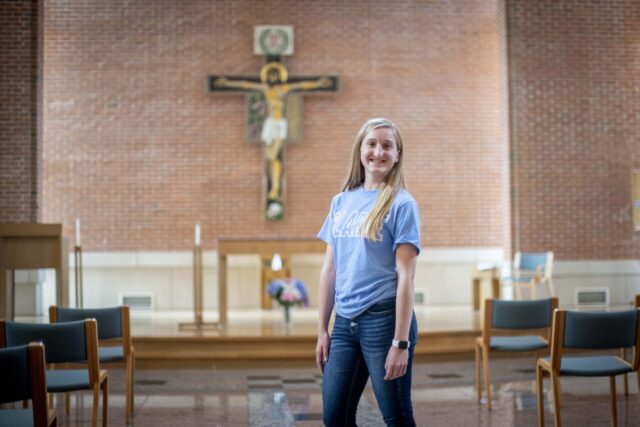
Program Details
Why study religion? You’ll explore the spiritual dimensions of human existence and think critically about the connections between faith and life in our world today. This spiritual search for meaning, grounded in the teachings of the Catholic tradition, investigates Christian theology and concepts of God, relates an understanding of contemporary biblical scholarship and Christian faith, and explores the ethical and social responsibilities of Christians living in a global community. Students come to see that their life and actions stand as a continual witness to shape a more just and peaceful world. This Religious Studies degree gives students new perspectives and prepares them for living courageously in the 21st century.
Service
Clarke University believes that opportunities for service outside the classroom deepen a student’s understanding of complex philosophical, social, and political issues and help them develop a sense of civic responsibility. Our students in religion study volunteer in the community and participate in service-learning whenever possible here in Dubuque, Iowa, regionally, nationally, and abroad.
Unique Coursework
Here is a sampling of the types of unique and diverse classes you will take in the Religious Studies degree program:
FAITH AND DOUBT — Study contemporary challenges to belief in Christianity, including the science-religion debate, atheism, and the nature of Christian revelation.
WORLD RELIGIONS — Explore the origins, beliefs, rituals, and scriptures of Eastern and Western religious traditions.
PRACTICUM IN CATECHETICAL, LITURGICAL, PASTORAL, OR YOUTH MINISTRIES — A service or ministry internship involving theological reflection with a faculty member.
Applicants are considered on an individual basis. Apply to Clarke today to begin your journey.
Let’s Talk Careers
Religious studies majors may opt to pursue non-ordained clergy positions upon graduation. Ordained clergy, such as rabbi, priest and chaplain positions, require seminary training in addition to a bachelor’s degree. A minor in Religious Studies can open the door to many types of careers, such as:
Life at Clarke is living traditions, being proud, participating in the campus community, and being an active member of our greater community. Clarke boasts more than 30 clubs and organizations who are always welcoming and supportive of new students.
Get involved with campus ministry to participate in mission trips, retreats, and community service.
Eucharistic liturgy is the fount and summit of Christian life and as such takes a central place in the campus life of Clarke University in the Sacred Heart Chapel.
I learned a lot about not just my faith, but the spiritual quest for Truth that lies in every human heart. I definitely owe much of my love of diving into my faith to my time at Clarke.

I love the way that the religious studies professors really want to see me succeed and are willing to jump over mountains with me to get there. I know I will achieve my goal to be a missionary overseas.
Through my experience at Antioch, I have really learned a lot about myself both spiritually and fundamentally, and I believe that this knowledge plays a role in my day-to-day life.
The one-to-one learning that happens at Clarke means students succeed at securing internships and career opportunities.
We are aligned with the USCCB national certification standards in lay ministry and prepare students for work in parish ministries, educational institutions, social justice agencies, and charities.

